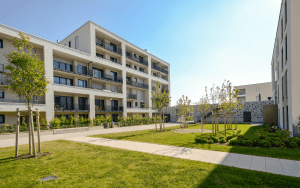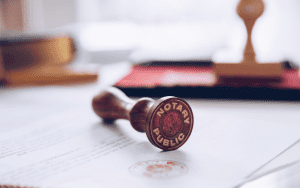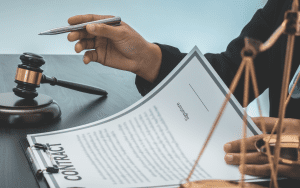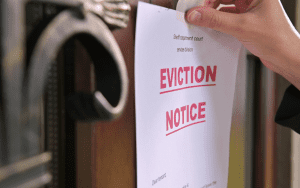Must my residential lease agreement be in writing? It is currently not a requirement for a residential lease agreement to be in writing – a verbal agreement where the rent and rented property is identified is recognized by South African common law and is just as valid as a written agreement. This may, however, not remain the position for much longer. The Rental Housing Amendment Act, which is not in operation yet, requires that all lease agreements should be in writing, and places the onus of ensuring compliance herewith on the Landlord. A lease agreement must, however, be reduced to writing if the tenants requests this from the landlord.
As a rule, it is preferable to enter into a written lease agreement, as it brings a measure of certainty regarding the contractual terms, rights, and duties. Verbal lease agreements often lead to “he-said-she-said” disputes and conflict.
Leases can also be formed by conduct alone. For example, if you as a tenant pay the owner of the property a monthly amount and they accept the money on the shared understanding that the payment is paid in exchange for the tenant being allowed to live in the rented property, then there is a lease agreement between the parties. Such an agreement can easily lead to conflict when one of the parties unilaterally change their conduct by, for example, paying a lesser monthly amount or sending an electricity bill to the tenant where the owner had always paid it in the past.
How long can my lease endure?
A fixed-term lease may endure for a maximation period of 24 months in terms of the Consumer Protection Act. This restriction only applies to natural persons. It may, however, be possible for a lease to endure for a longer period (as stipulated in the lease agreement) if the parties can show that there is a demonstratable financial benefit to the lessee.
In what condition must the lease premises be when I move in?
The Landlord must make the premises available for occupation in a condition reasonably fit for the purpose for which it was let, namely human habitation. The general state of the property should be well-documented during the ingoing inspections by listing and taking photographs of any defects. It is advisable for the tenant to view and inspect the premises before signing the lease agreement, to ensure that the premises are in a good and safe condition.
Can I sublet the lease premises?
This will depend on the agreement. If there is no clause in the written lease agreement making provision for Subletting, a lessee will be entitled to sublet the property without the Landlords consent. The latter is qualified in that the proposed sublessee must not be a person to whom the original lessor could reasonably object. If the lease does make provision for Subletting, the provisions of the lease agreement must be followed.
What can I do if my landlord does not keep up their side of the bargain?
The Landlord is bound to the terms and conditions of the lease just like the tenant is. The Landlord’s duties in terms of the lease can therefore be enforced in various ways. If the dispute cannot be resolved on an informal basis, the first port of call will be the lease agreement. The written lease agreement may make provision for disputes and the steps to be taken during a dispute. In the absence of such a clause, the tenant can lodge a complaint with the Rental Housing Tribunal. The Rental Housing Tribunal resolves complaints through dispute resolution mechanisms such as mediation and arbitration. The parties can also approach their attorneys for legal advice.
This article is a general information sheet and should not be used or relied on as legal or other professional advice. No liability can be accepted for any errors or omissions nor for any loss or damage arising from reliance upon any information herein. Always contact your legal adviser for specific and detailed advice. Errors and omissions excepted (E&OE)
















